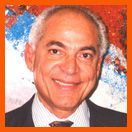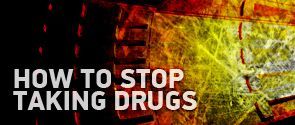
Research Professor and Director of the Center for Remote Sensing at Boston University, Boston MA, U.S.A.
"I hope our cooperation will move the situation with drugs from dead point!"
Dr. Farouk El-Baz is an Egyptian American scientist who worked with NASA to assist in the planning of scientific exploration of the Moon, including the selection of landing sites for the Apollo missions and the training of astronauts in lunar observations and photography.
He was born on January 2, 1938 in the Nile Delta town of Zagazig. At the age of 20, he received a B.Sc. in Chemistry and Geology from Ain Shams University. In 1961, he received a M.S. degree in Geology from the Missouri School of Mines and Metallurgy (now Missouri University of Science and Technology). In 1964 he received a PhD in Geology from the Missouri University of Science and after conducting research in 1962-1963 at the Massachusetts Institute of Technology (MIT), Cambridge MA. In 1989, he received an Honorary Doctor of Science degree from the New England College, Henniker, NH; in 2002 a Professional Degree from Missouri S&T; in 2003 an Honorary Ph.D. from Mansoura University in Egypt; in 2004 a Doctor of Laws degree from the American University in Cairo; and in 2004 an Honorary Doctor of Engineering degree from Missouri S&T.
Post-Doctorate
Dr. El-Baz taught Geology at Assiut University, Egypt (1958-1960) and the University of Heidelberg, Germany (1964-1965). He joined the Pan American - U.A.R. Oil Company in 1966, where he participated in the discovery of El-Morgan, the first offshore oil field in the Gulf of Suez.
NASA
From 1967 to 1972, Dr. El-Baz participated in the Apollo Program as Supervisor of Lunar Science Planning at Bellcomm Inc., a division of AT&T that conducted systems analysis for NASA. During these six years, he was secretary of the Landing Site Selection Committee for the Apollo lunar landing missions, Principal Investigator of Visual Observations and Photography, and chairman of the Astronaut Training Group. His outstanding teaching abilities were confirmed by the Apollo astronauts. While orbiting the Moon for the first time during Apollo 15, Command Module Pilot Alfred Worden said, "After the King's [Farouk's nickname] training, I feel like I've been here before.Also during the Apollo program, Dr. El-Baz joined NASA officials in briefing members of the press on the results of the lunar missions. His ability to simplify scientific jargon made his remarks on the program's scientific accomplishments often quoted by the media.
Post-Apollo
After the Apollo Program ended in 1972, Dr. El-Baz joined the Smithsonian Institution in Washington DC to establish and direct the Center for Earth and Planetary Studies at the National Air and Space Museum. At the same time, he was elected as a member of the Lunar Nomenclature Task Group of the International Astronomical Union. In this capacity, he continues to participate in naming features of the Moon as revealed by lunar photographic missions.In 1973, NASA selected him as Principal Investigator of the Earth Observations and Photography Experiment on the Apollo-Soyuz Test Project (ASTP), the first joint American-Soviet space mission of July 1975. Emphasis was placed on photographing arid environments, particularly the Great Sahara of North Africa and the Arabian Peninsula, in addition to other features of the Earth and its oceans.
Emphasizing the study of the origin and evolution of arid landscapes, he collected field data during visits to every major desert in the world. One of his significant journeys took place soon after the United States and China had normalized relations in 1979, when he coordinated the first visit by American scientists to the deserts of northwestern China. The six-week journey was chronicled in the National Geographic and the Explorers Journal. His research on the origin and evolution of the desert resulted in his election as Fellow of the American Association for the Advancement of Science (AAAS).From 1982 until he joined Boston University in 1986, he was Vice President of Itek Optical Systems of Lexington MA. During these years he supervised the utilization of the Space Shuttle's Large Format Camera photographs.
During the past 20 years, in his research at Boston University, Dr. El-Baz utilizes satellite images to better understand the origin and evolution of desert landforms. He is credited with providing evidence that the desert is not man-made, but the result of major climatic variations. His research uncovered numerous sand-buried rivers and streams in the Sahara based on the interpretation of radar images. These former water courses lead into depressions in the terrain, which he theorized must host groundwater. His analysis of these data resulted in the location of groundwater in the arid terrains of Egypt, Oman and the United Arab Emirates (U.A.E.), and perhaps Darfur in Sudan.
Dr. El-Baz was elected Fellow of the Geological Society of America, the Academy of Sciences for the Developing World TWAS, and to the National Academy of Engineering (USA). In 1999, the Geological Society of America Foundation (GSAF) established the "Farouk El-Baz Award for Desert Research," to annually reward excellence in arid land studies. In 2007 the GSAF also established "Farouk El-Baz Student Research Award" to encourage desert research.
He is married, has four daughters, and six grandchildren.










